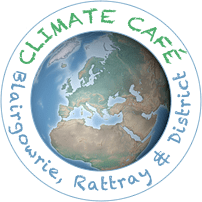A-z of climate change part 2
Date: Saturday 5 September

N. Nurdles: tiny pellets of plastic. Building blocks for most plastic products from TV sets to water bottles, they can be spilled or mishandled when transported. They are found on beaches and in the sea, where they fragment over time, mistaken for plankton - food for marine animals, thus entering the food chain. Unlike larger pieces of plastic, like fishing nets, there is no way of removing these micro plastics from the sea. Beach clean volunteers find some of them. www.fidra.org.uk/nurdles
Nitrogen fertiliser is the only soil nutrient synthetically made from a gas. (Ammonium Nitrate). Excess nitrogen, dissolved by rainfall, is washed from fields and allows growth in waterways of small plants and algae, starting a process in rivers and seas which leads to eutrophication, dead zones, a serious loss of biodiversity and disruption to ecosystems.
O. Oceans. 17,000,000,000 lbs of plastic rubbish enter the oceans per annum.
Oceans, like forests are crucial in absorbing CO2 from the atmosphere.
Overconsumption: the purchase of luxury, non-essential goods; not a sustainable way of existing.
P. Plastic is derived from oil, therefore from a fossil fuel. A versatile product when used responsibly, (in construction, transport, electrical, medical and other industries) is very damaging as single-use or “disposable” items. Plastic is complicated to recycle there being 7 different types. It also contributes to the fast fashion problem as fibres spun from plastic (acrylic, polyester, polyamide etc.) are shed when washed, ending up in the oceans as micro plastics and entering the food chain.
Petrochemical industry operates in Scotland at Mossmorran and Grangemouth. Some oil and gas piped from the North Sea & fracked gas (ethane) shipped from USA is converted into plastics.
Peatland is our most efficient carbon-capturing ecosystem. Peatland destruction allows escape of greenhouse gases, including methane.
Q. Qualifications. “Climate Solutions” is a course of online modules on understanding climate change. It is aimed at managers of organisations and businesses, supported by Scottish government, run by the Royal Scottish Geographical Society, Edinburgh and Stirling universities and the institute of Directors. www.rsgs.org
R. Rainforests: temperate and tropical, enable oxygen turnover are the lungs of the earth.
Subjected to heavy legal and illegal logging clearing for oil palm plantations and cattle ranching, deforestation is an environmental crisis.
Refugees: increasing numbers of people fleeing from land impoverished by climate disruption as well as war.
S. Soil degradation: soil is taken for granted, but reducing constantly. Nitrogen, phosphorus and potassium are fertilisers, but the last two are mined and irreplaceable and need to be used sparingly to avoid run off into watercourses. Soil is vital, but needs protection. There are local examples of sustainable farming practices.
Sustainability is the target of a circular economy.
Supporting local farmers, producers and shops cuts down on food miles and strengthens the local economy.
T. Trees provide shade and cooling, absorb greenhouse gases and pollutants, reduce flood risk, provide food, timber and habitat. Desertification happens when population increases, trees are cleared, there is overgrazing, soil erosion, mining and increasing heat and less rain. Planting more trees helps long-term recovery.
U. UN Climate Change annual conference COP26 will be held in Glasgow 2021 to assess and accelerate progress in dealing with climate change.
V. Viruses: in the coming decades, ecological degradation, rising temperatures, and extreme weather events could intensify the threats to human health posed by viruses. www.medicalnewstoday.com
W. Water is a precious resource, vital for all forms of life, needed by farmers and communities. Water drawn off by global companies to fill single use plastic bottles, leaves many communities without adequate supplies for farming and growing. Vital for oversea transportation, sanitation, health and industrial use. Disappearing glaciers have led to extreme water shortages in some parts of the world reliant on melting ice. www.water.org.uk www.scottishwater.co.uk
X. eXporting plastic waste. The ban on plastic exports to China has seen the UK offloading its waste to nations with questionable practices.
Y. You.
Z. Zero Waste - the goal is for no waste to be sent to landfill, incinerators or oceans. In a zero Waste system, material is reused as long and often as possible. We use the resource equivalent of 3 planets which is unsustainable. www.zerowastescotland.org.uk. Visit the Green Way Zero Waste Shop.
Previous Posts

PKC Climate Commission
What should PKC's priorities be on climate a... Read More >
Taybank growers' Open Day 9th July
Taybank Growers are holding an open day on J... Read More >